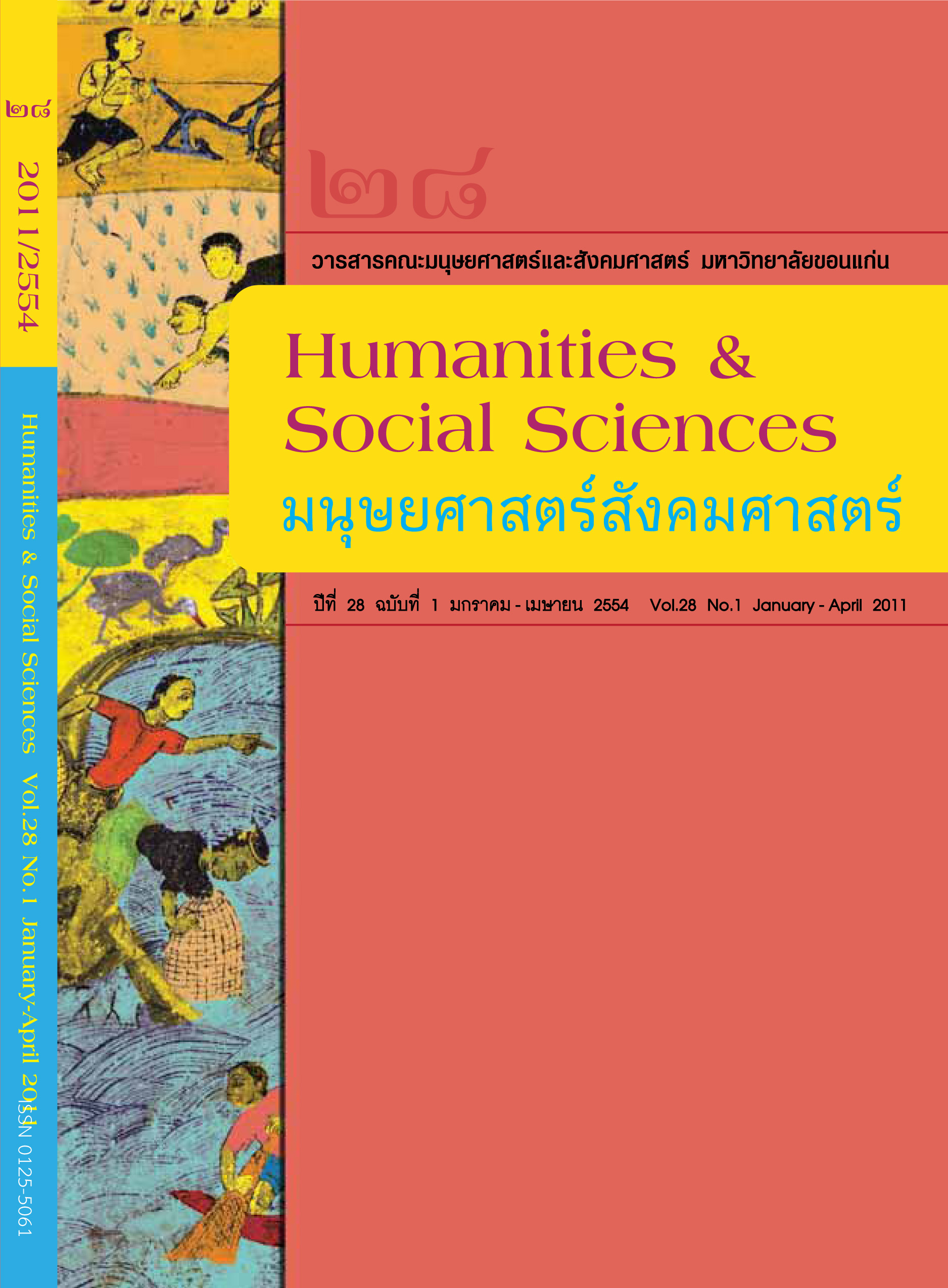การต่อสู้ทางการเมืองในกระบวนการนโยบายสื่อสาธารณะ
Keywords:
การต่อสู้ทางการเมือง, กระบวนการนโยบายสาธารณะ, สื่อสาธารณะ, political contestation, policy process, public service broadcastingAbstract
บทคัดย่อ
บทความนี้มีวัตถุประสงค์เพื่อวิเคราะห์ถึงการเมืองในกระบวนการนโยบายสื่อสาธารณะตั้งแต่โทรทัศน์เสรีสู่โทรทัศน์สาธารณะ โดยนำเสนอ ผลการวิเคราะห์บทบาทของกลุ่มผลประโยชน์และขบวนการเคลื่อนไหวทางสังคม ในกระบวนการนโยบายสื่อสาธารณะโดยใช้ทฤษฎีการระดมทรัพยากรและแนวคิดขบวนการเคลื่อนไหวทางสังคมเพื่อค้นหาว่ากระบวนการนโยบายสื่อสาธารณะและการจัดตั้งองค์การกระจายเสียงและแพร่ภาพสาธารณะแห่งประเทศไทย (ส.ส.ท.) เป็นอย่างไรภายใต้บริบทการเมือง โดยใช้วิธีวิจัยเชิงคุณภาพใน การเก็บรวบรวมข้อมูลเอกสารชั้นต้นและการสัมภาษณ์เชิงลึกจากกลุ่มตัวอย่าง ซึ่งได้แก่ กลุ่มผู้ที่เกี่ยวข้องกับกระบวนการนโยบายสื่อสาธารณะ โดยอธิบายบริบท ทางการเมืองและความขัดแย้งที่เกิดขึ้นในกระบวนการนโยบายสื่อสาธารณะ เนื่องจากการเมืองมีอิทธิพลต่อการกำเนิดสื่อสาธารณะโดยเริ่มตั้งแต่เหตุการณ์พฤษภาทมิฬปี พ.ศ. 2535 ที่นำมาสู่การจัดตั้งสถานีโทรทัศน์ไอทีวี จนกระทั่ง มีการยกเลิกสัมปทานสถานีโทรทัศน์ไอทีวีและนำมาสู่การจัดตั้งองค์การกระจายเสียงและแพร่ภาพสาธารณะแห่งประเทศไทยในปี พ.ศ. 2551
ผลการศึกษาพบว่า การนำสถานีโทรทัศน์ ยู เอช เอฟ ที่สำนักงาน ปลัดสำนักนายกรัฐมนตรีได้กลับคืนมาจากผลการยกเลิกสัญญามาแปลงสภาพเป็นสื่อสาธารณะเป็นทางออกที่มีความเป็นไปได้สูงสุดของรัฐบาล ซึ่งสามารถเกิดขึ้นได้โดยเร็วเพื่อสอดรับกับการแก้ไขปัญหา อย่างไรก็ตามกระบวนการนโยบายสื่อสาธารณะยังคงเป็นการมีส่วนร่วมที่จำกัดจากการรับฟังความคิดเห็น ของประชาชนในระยะเวลาที่จำกัด แม้ว่ามีการเปิดโอกาสให้กลุ่มผลประโยชน์/ ขบวนการเคลื่อนไหวทางสังคมเคลื่อนไหวข้อเรียกร้องของตนได้มากขึ้นและต่อสู้ กันเพื่อผลักดันให้เกิดนโยบายสื่อสาธารณะ แต่สื่อสาธารณะเกิดขึ้นในยุคที่ไม่ เป็นประชาธิปไตย จึงไม่ได้สะท้อนว่าอำนาจสูงสุดอยู่ที่ปวงชน สื่อจึงไม่ได้ถูกสร้าง จากข้างล่างที่ประชาชนต้องการให้ได้มาซึ่งสื่อสาธารณะ แต่เกิดจากชนชั้นนำซึ่ง เป็นผู้ปกครองหรือนักเทคนิคที่เชื่อว่าตนเป็นผู้มีความรู้มากกว่าผู้อื่นซึ่งสามารถ เข้าถึงกระบวนการเจรจาต่อรองในระบบการเมืองได้ ดังนั้นในการนำนโยบาย สื่อสาธารณะไปปฏิบัติจึงควรเปิดโอกาสให้ประชาชนทั่วไปได้มีส่วนร่วมในการ กำหนดนโยบายองค์การสื่อสาธารณะอย่างกว้างขวางเพื่อให้สามารถตอบสนอง ต่อความต้องการของผู้ชมและผู้ฟังรายการอย่างแท้จริง
คำสำคัญ : การต่อสู้ทางการเมือง, กระบวนการนโยบายสาธารณะ, สื่อสาธารณะ
Abstract
This study is aimed to investigate the politics in the public media policy process since free television to public television, especially on to explain the political contestation in the public media policy process. The literature on the resource mobilization theory proposed by McCarthy and Zald and new social movement concept was used as a framework for the investigation. This study is a qualitative research by analysis of the official policy documents, searching for information from through interviews of the policy stakeholders. The study was based on the following areas: After the coup in May 1992, the media was manipulated by state power that caused establishment of the Independent Television (ITV); in the coup of 2006, the Independent Television was the free of domination, that brought about establishing the public media policy in 2008.
The result of this study finds that the public media issue stems from intervention from state and capital power. This issue is pushed by the intellectuals and interest groups to set the agenda under the administrative sector broker interests and articulate ideals. The case of the Thai Public Service Broadcasting (TPBS) was directly a fruit borne out of research and advocacy by a technocratic clique who had access to political power during the coup-installed administration and legislature (the National Legislative Assembly).In making the initiative policy, The political sector need to gain the information and the knowledge of the public media concept from non-governmental organizations such as interest groups and social movements to push this issue to the governmental agenda. However, there is insufficiency of citizen participation to support the public media policy. Therefore, the public media policy process should be citizen participatory by public opinion and public debate.
Keywords : political contestation, policy process, public service broadcasting



